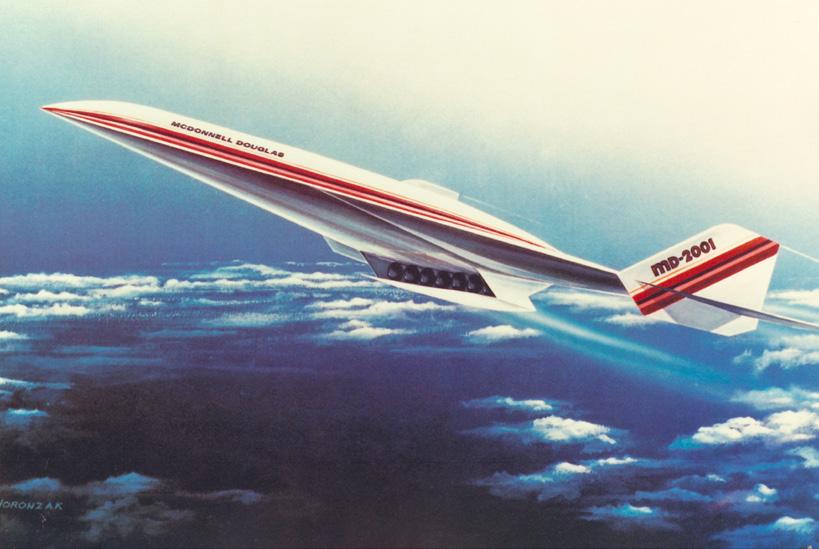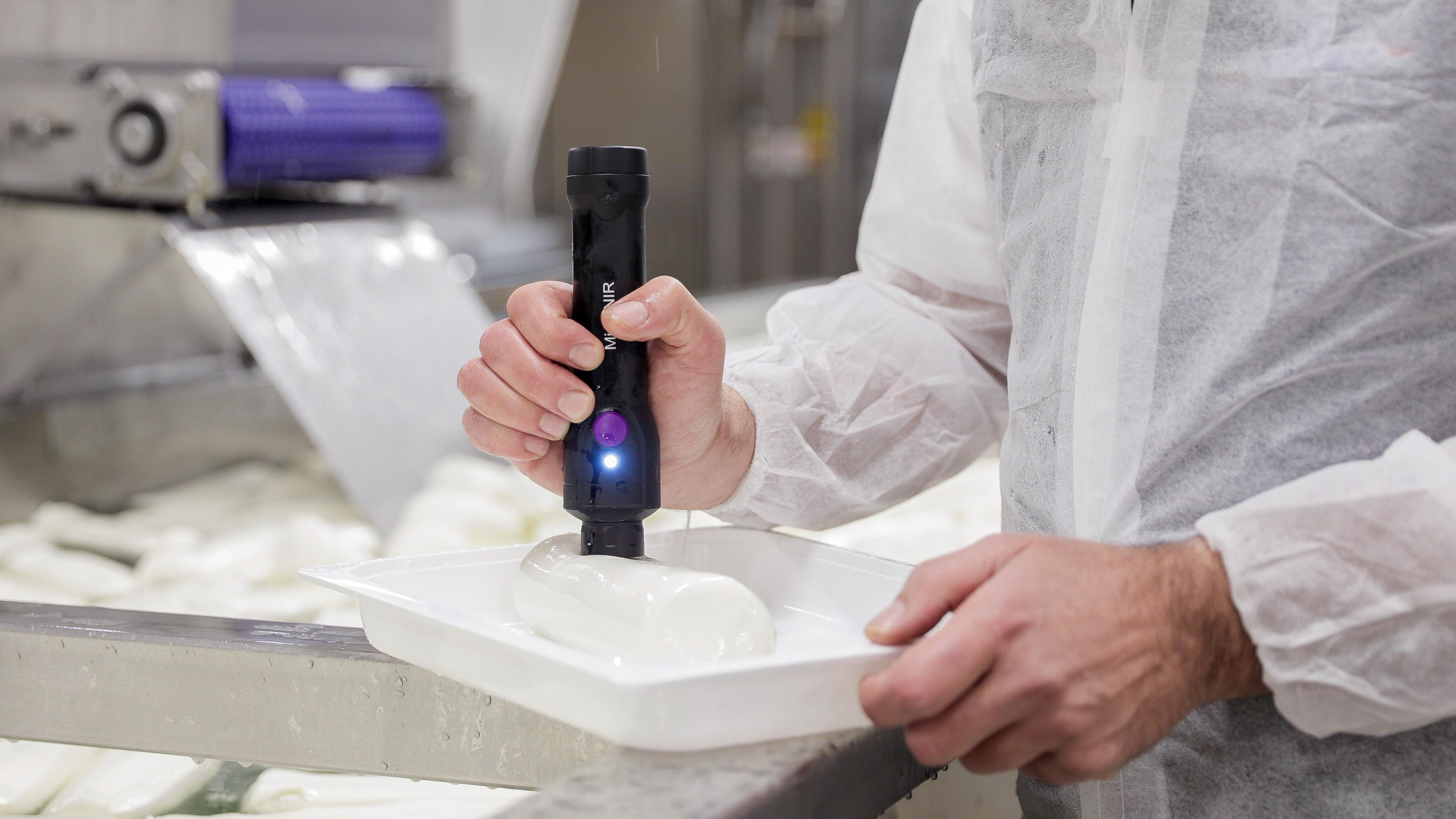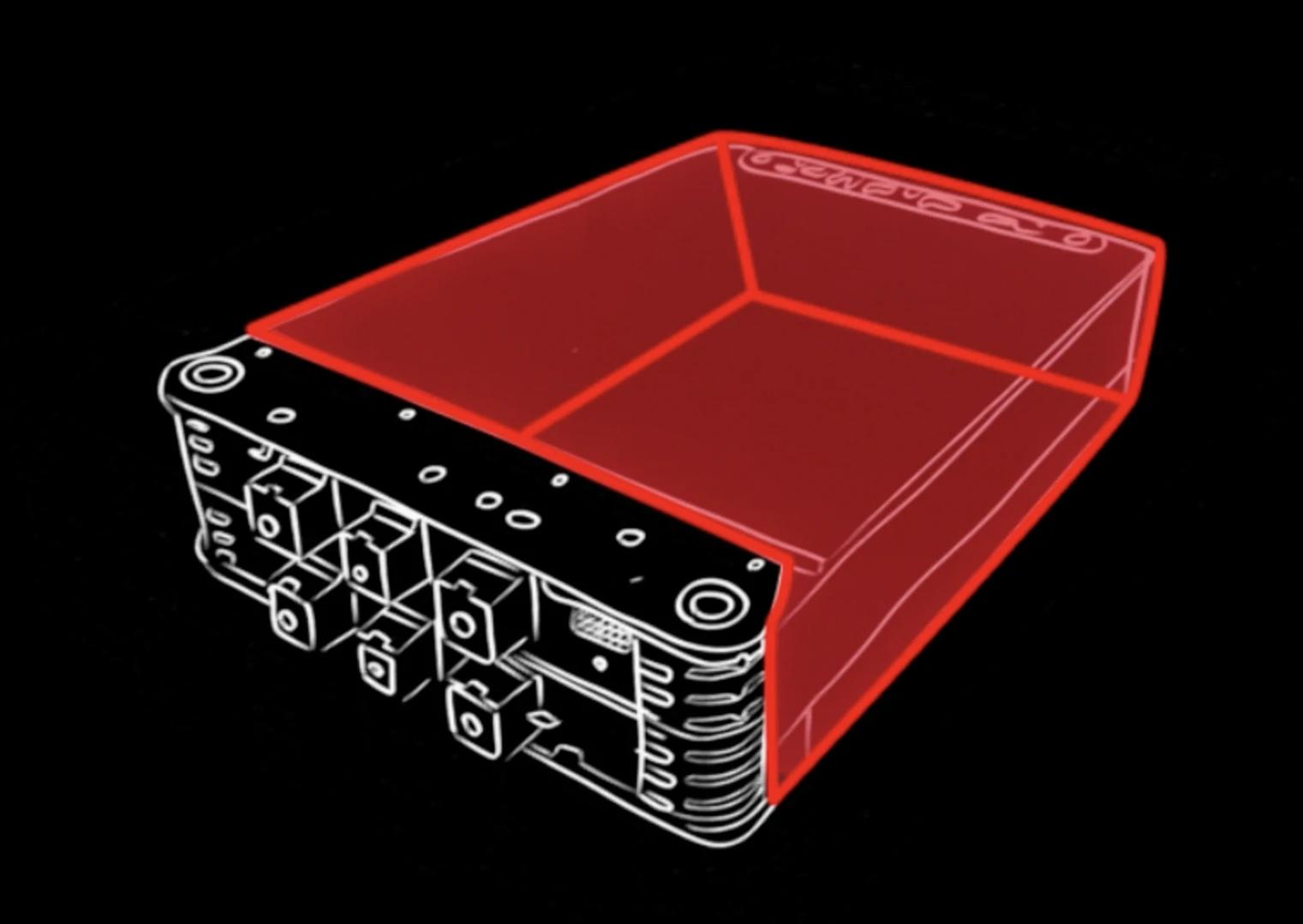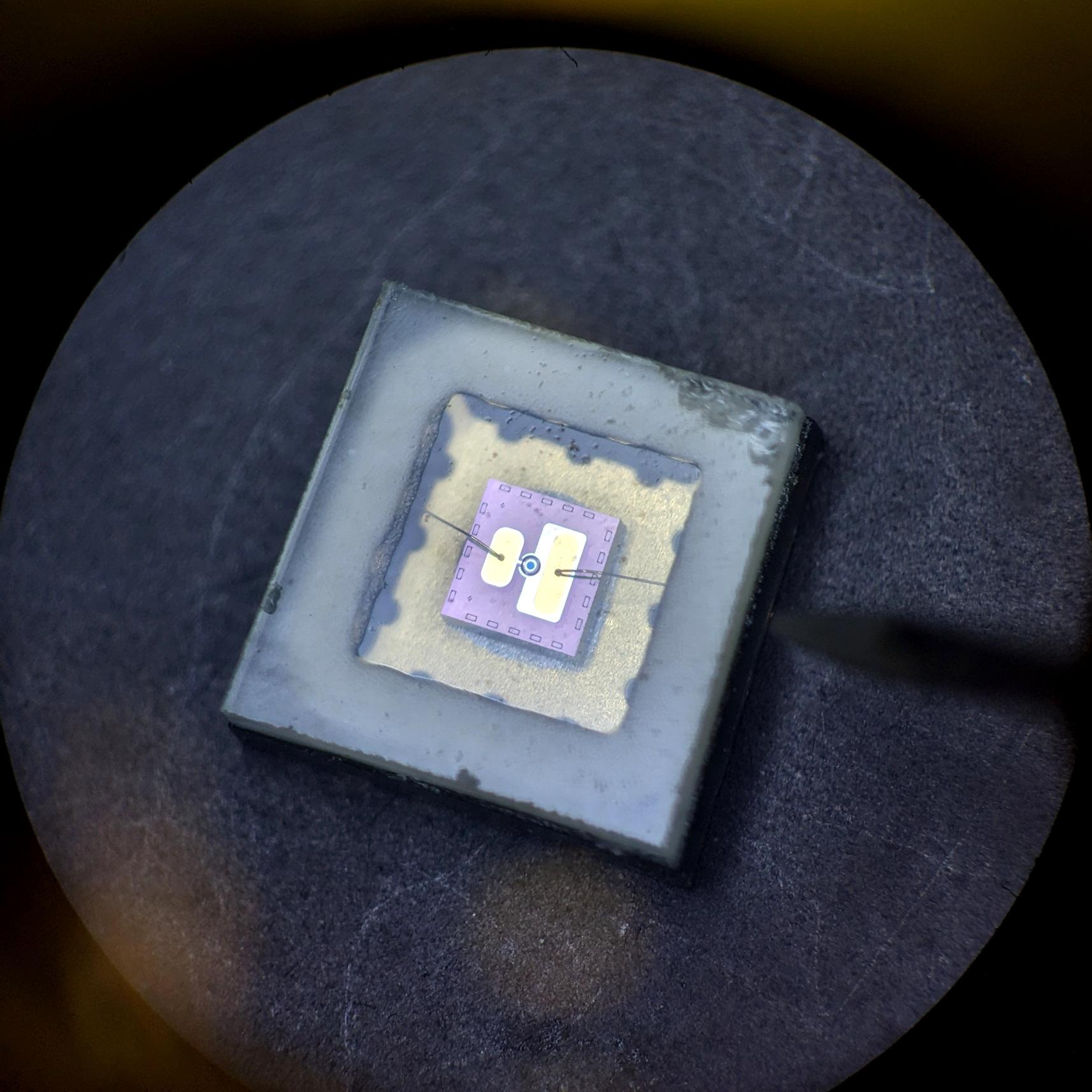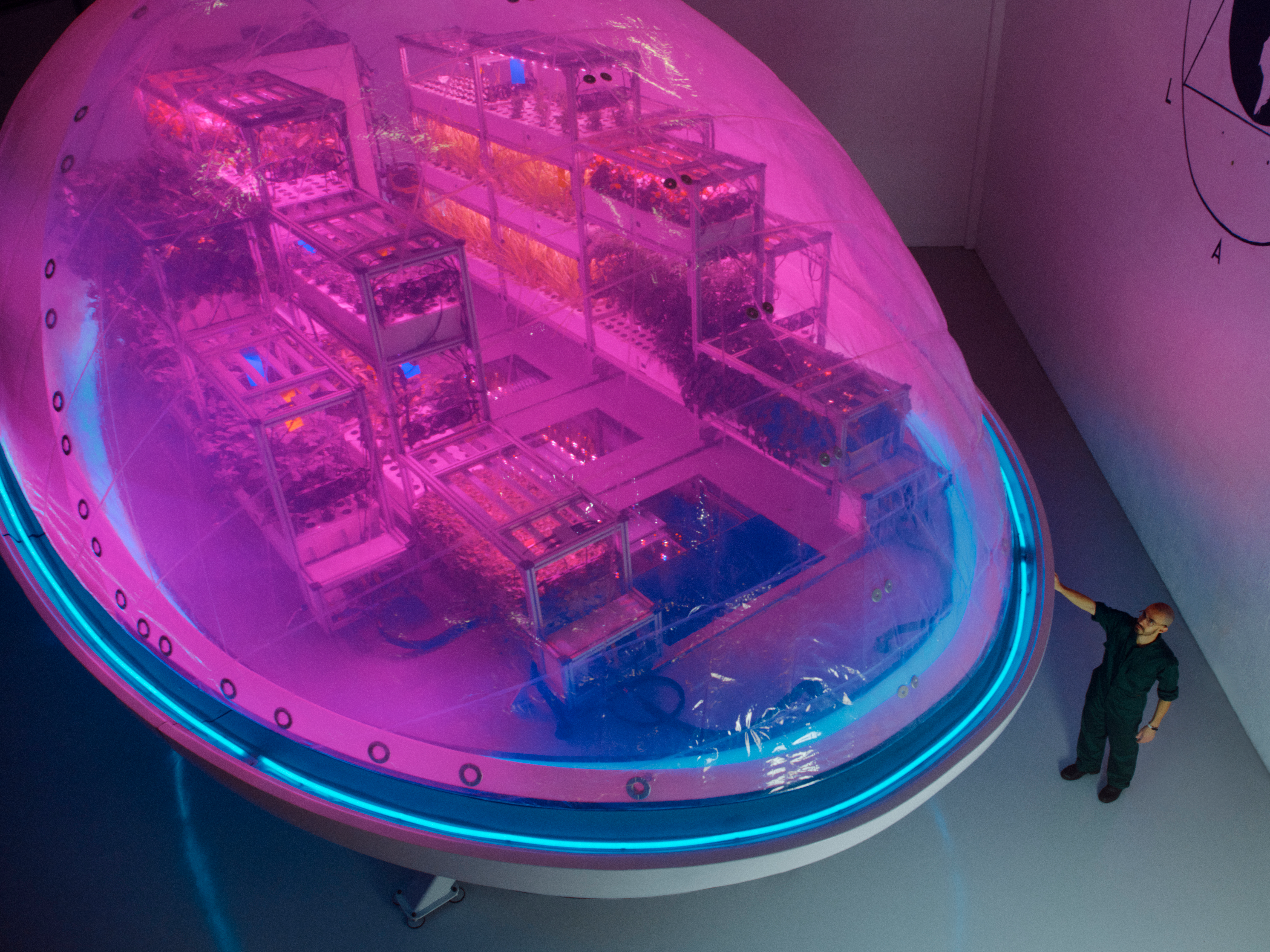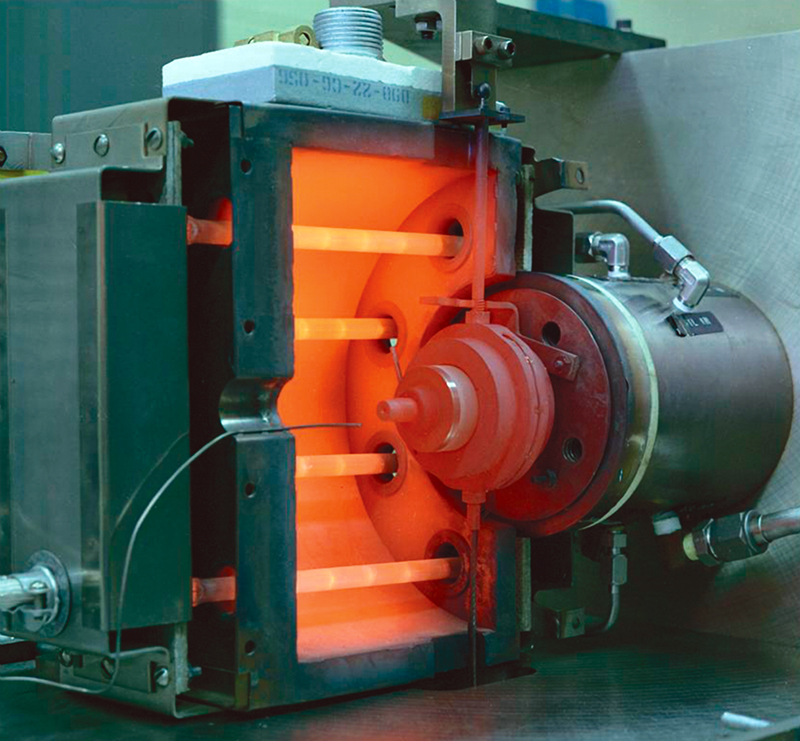
Cost-Cutting Powdered Lubricant
Originating Technology/NASA Contribution
Scientists at NASA’s Glenn Research Center developed a high-temperature, solid lubricant coating material that is saving the manufacturing industry millions of dollars. The material came out of 3 decades of tribological research, work studying high-temperature friction, lubrication, and the wearing of interacting surfaces that are in relative motion. It was developed as a shaft coating deposited by thermal spraying to protect foil air bearings used in oil-free turbomachinery, like gas turbines, and is meant to be part of a larger project: an oil-free aircraft engine capable of operating at high temperatures with increased reliability, lowered weight, reduced maintenance requirements, and increased power.
This advanced coating, PS300, is a self-lubricating bearing material containing chromium oxide, with additions of a low-temperature start up lubricant (silver) and a high-temperature lubricant, making it remarkably stable at high temperatures, and better suited than previously available materials for high-stress conditions. It improves efficiency, lowers friction, reduces emissions, and has been used by NASA in advanced aeropropulsion engines, refrigeration compressors, turbochargers, and hybrid electrical turbogenerators.
PS300 is ideal in any application where lowered weight and reduced maintenance are desired, and high-temperature uses and heavy operating speeds are expected. It has notable uses for the Space Agency, but it has even further-reaching potential for the industrial realm.
Partnership
The Great Lakes Industrial Technology Center (GLITeC), a NASA technology incubator that helps small business take advantage of available NASA technologies, assisted ADMA Products, Inc., in obtaining a license for PS300.
ADMA, based in Hudson, Ohio, specializes in powder metallurgy products from titanium, zirconium, niobium, and other advanced materials and alloys. It had been using PS200 for 8 years already when NASA developed the more advanced PS300. Vladimir Moxson, ADMA president, jumped at this new opportunity. GLITeC worked with company management to design a commercialization plan, and ADMA now holds the license for PS300.
Through GLITeC, NASA continued to support ADMA with the development and commercial application of PS300. Researchers worked closely to optimize the manufacturing process and maximize yield. The result was that, after the collaboration, ADMA was able to increase yields of the key starting material from 5 percent to 45 percent. This improvement reduced the price of the PS300 composite, cut delivery times of the product, and increased ADMA’s profits.
ADMA is now supplying the advanced PS300 at a reduced cost to thankful customers, who, in turn, are saving hundreds of thousands of dollars from the use of this space-age product.
Product Outcome
PS300 starts as a powder, which ADMA can either manufacture into a customized solution for a customer’s specific needs or apply directly as a coating, via thermal spraying techniques or standard powder metal application methods, such as the press and sinter methods. In short, ADMA can work this material to fit any needs.
One of ADMA’s customers, Elliott Turbomachinery Company, of Jeannette, Pennsylvania, has had resounding success with PS304, a derivative of PS300 which is used for coating by plasma spraying. Elliott is a designer and manufacturer of air and gas compressors, steam turbines, power recovery turbines, and power-generating equipment. The company has heavy, moving machinery, called lift rods, that withstand an amazing amount of wear and operate in temperatures up to 1,005 °F.
ADMA provided, through Hohman Plating and Manufacturing Corporation, of Dayton, Ohio, PS300 powdered lubricant-coated valve lift rods for Elliot’s steam turbine compressors, with noteworthy economic benefits. Elliott had previously replaced the rods every 2 years, but projects that these new rods will last 8 years. It estimates that this will save at least $3 million in repair costs, not including the additional advantage of not having to leave the equipment idle for days upon days during the actual repairs.
ADMA has provided another company with this dry lubricant and had similarly remarkable cost-saving effects. The Lincoln Electric Company, of Cleveland, Ohio, designs, develops, and manufactures arc welding products, robotic welding systems, and plasma- and oxygen-cutting equipment. Lincoln had the need to replace a set of bronze bushings that were an integral part of a dryer oven used in a manufacturing line. The current bushings were causing system failures, which led to downtime and frequent, costly repairs. ADMA produced a set of PS300 bearings to address the problem.
Lincoln found that these bearings showed such high reliability that the company decided to retrofit all of its sintering furnaces with them. This expenditure, the company estimates, will save an average of $200,000 per furnace per year, over an estimated lifespan of 10 to 20 years. Like Elliot, Lincoln is finding additional economic return, since the furnaces do not have to be shut down as often for maintenance and repairs. It refurbished a number of its furnaces and even its subsidiaries abroad are working to replace their bronze bushings with the space-age material.
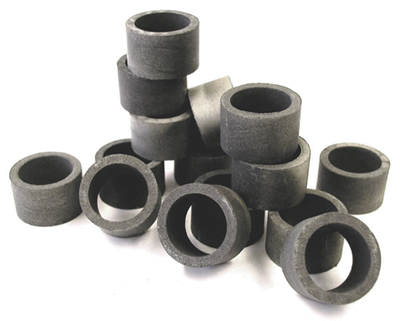
Oil-free bushings coated in PS300 save companies thousands of dollars in repair costs. PS300 is a composite high-temperature, lubricating, chrome-oxide-based material that is embedded with compound particles that function as solid lubricants.

This red-hot machine (pictured here with the door open) tests the PS300 bearing materials under very high temperatures.







